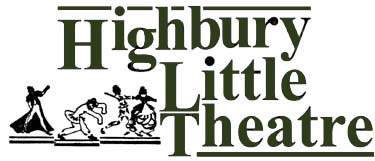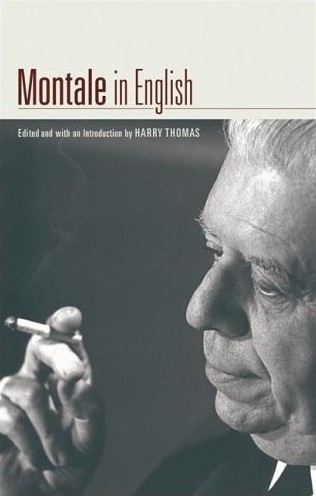That's "Rafe," not "Ralf." Rrrrafe. Roll your "r": R-r-r-r-r-rafe.
On a fansite for Ralph Fiennes, there's a "Poetry Corner" page, which collects recordings of the actor reading all sorts of verse, from Shakespeare to Kipling to Pablo Neruda. This, in itself, is not surprising.
But I was left completely nonplussed to discover Ralph Fiennes reading "Naming of Parts" (.mp3). He does the two voices, and everything! Just when you thought the Internet wasn't, y'know: good for stuff.
The poem appears under a section for BBC Radio 4's program, "Poetry Please," so I have to assume this to be the recording's origin. The section also includes Fiennes's interpretations of Keith Douglas's "Vergissmeinnicht," and John Gillespie Magee's "High Flight."
|
Everybody Loves Ralph
Blue CirclesHenry Reed died December 8th, 1986, in St. Charles Hospital, London. This December marks the twentieth anniversary of his death.
This landmark makes Reed eligible for one of English Heritage's famous Blue Plaques, which adorn London landmarks once inhabited by eminent contibutors to the arts or industry. Some notable contemporaries of Reed's who have been awarded plaques include: Sir John Betjeman (31 Highgate West Hill), Sir Arthur Bliss (1 East Heath Road), Benjamin Britten, O.M. (173 Cromwell Road), C. Day-Lewis (6 Crooms Hill), T.S. Eliot, O.M. (3 Kensington Court Gardens), Louis MacNeice (52 Canonbury Park South), Dame Edith Sitwell (Greenhill, Hampstead High Street, Flat 42), and Dylan Thomas (54 Delancey Street). Among other requirements, to be eligible for a Blue Plaque a person must:
There is good news, however. The Birmingham Civic Society already has plans to erect a Blue Plaque dedicated to Reed in their city during the centenary of his birth, in the year 2014 (see future plaques). W.H. Auden already has one (see this gallery of Blue Plaques in Birmingham). Also scheduled to receive plaques in Birmingham are Walter Allen (in 2011), and Louis MacNeice (2013). At any rate, on Friday, December 8th I'll be stopping down at the local pub after work, to honor Mr. Reed's memory with one his favorite pastimes: having a few drinks. I'm buying!
The Miser in the Church HouseIn 1933, a small theatre group in Birmingham, England, staged a production of Molière's L'Avare (The Miser) at the Church House, High Street, Erdington (pictured here). The company called themselves after the name of the house where they rehearsed: The Highbury Players. They had begun in 1924 as an artistic branch of the local Independent Labour Party, originally meeting to read stage plays aloud, but eventually forming the Highbury Little Theatre.
An excerpt from the book Highbury Little Theatre: A Beginning, written in 1946, describes the early efforts of the organization after their first play in 1925: In the next twelve years the work undertaken included the following full length plays: Conflict, Much Ado about Nothing, Pygmalion, Heartbreak House, The Show, The Roof, Escape, The Skin Game, A Hundred Years Old, Pleasure Garden, Othello, The Circle of Chalk, The Sleeping Clergyman, and L'Avare in a new English translation by John English and Henry Reed—this was in 1932. Mr. John English, OBE, one of the original members of the group, would go on to become a trustee of the Highbury Theatre Centre, and would help found the Midland Arts Centre. There can be little doubt that the Highbury Players' co-translator of Molière's L'Avare was our Henry: the odds of coincidence are just too great. Henry Reed was born and raised in Erdington, was a vocal Socialist, and concentrated on French (and Latin) throughout his education, from King Edward VI Grammar School, all the way through his years at the University at Birmingham, which happen to coincide with the play's production.
Milward and UpwardAn unconfirmed sighting appears in the archives of a Midwestern university: a letter from a 'Henry Reed' to Father Peter Milward, S.J., in the Small Manuscript Collection of the University of St. Thomas, St. Paul, Minnesota: 'Reed, Henry, one ALS to Fr. Peter Milward, 1975.'
I was quick to dismiss this as coincidence, until discovering that Father Milward is a renowned Shakespeare scholar. From "Fifty Years of Milward," in the Spring, 2002 Shakespeare Newsletter: Milward, originally from England, has spent a half century teaching at Sophia University in Tokyo, Japan. He is the founder or co-founder of numerous societies and organizations in Japan, most notably the Renaissance Institute, founded in 1971 to promote the scholarly vision of continuity between the Middle Ages and the Renaissance, in the spirit of C. S. Lewis. He is the author of over 300 books, which range from scholarship to poetry to educational guides for Japanese students. Milward's ["Fifty Years of Shakespeare, 1952-2002"] lecture at Boston College marked the establishment of the Peter Milward Special Collection (links mine) at Burns Library, which now has a more or less complete collection of Milward's Shakespeareana, and a generous selection of his other works. Boston College's scholarly journal, Religion and the Arts, is planning a sizable volume of essays on Shakespeare and the Reformation. Milward was therefore invited as a major figure in establishing Shakespeare's Reformation contexts, especially through his landmark book, Shakespeare's Religious Background, which argued for both Catholic and Anglican contexts. Milward, it turns out, was one of the first to argue that Shakespeare was a practicing Catholic. He has also written extensively on Gerard Manly Hopkins (he is the honorary president of the Tokyo branch of the Hopkins Society of Japan), and T.S. Eliot. While still unlikely, it seems entirely plausible that Reed may have written Father Milward to congratulate him on some publication on Shakespeare, or to argue some minuscule point of Eliot scholarship.
Layers of a PalimpsestThis week's mystery quote comes from a 1953 article by Ronald Bottrall, "The Teaching of English Poetry to Students whose Native Language is not English" (ELT Journal 8, no. 2 [Winter 1953-1954]: 39-44):
What, in fact, this kind of thing leads to is a Variorum edition of the poets; we have one of Hopkins already. The foreign student is particularly liable to be misled by this piling of Pelion on Ossa—at the worst he reads Gardner (W. H.) on Hopkins or Gardner (H.) on Eliot, and never gets near the poetry at all. To adopt a phrase of Henry Reed's, he is always reading the top layers of a palimpsest (emphasis mine). Unfortunately, I don't have easy access to the full text of the journal, but by doing some backwards-and-forwards searching I was able to withdraw this sizable chunk of the surrounding text. Not that the context makes it any easier to deduce the source of this particular paraphrase of Reed. I had to look up a whole bunch of stuff:
The 'palimpsest' line's provenance currently escapes me. Reed may have compared reading a particular author to only seeing 'the top lines of a palimpsest' in The Novel Since 1939 (British Council, 1946), or it may be a line he used in one his "Italian" radio plays, Return to Naples (1950), or The Great Desire I Had (1952). I guess the article is late enough for A Very Great Man Indeed (1953) to be fresh in the author's memory, but I don't recall the line being from there, either.
A One, and a Two, and a One-Two-ThreeWho gives a fuck about an "Oxford Comma"? (.mp3), by Vampire Weekend. (Via Steamboats Are Ruining Everything.)
Literary SocietyThis is my new favorite spot on the web: the Alliance of Literary Societies, a union of more than 100 societies dedicated to the cooperative promotion and preservation of literary heritage. "Literary societies have successfully campaigned for postage stamps to commemorate their authors, encouraged publishers to reprint their works and persuaded local authorities to put plaques on buildings" (Linda Hart, "Literary Societies."Women's World, 2003).
The Alliance's unassuming website is a touchstone for links to literary society websites, their newsletters, publications, and conferences. For example, there are societies for John Betjeman, Rupert Brook, Thomas Hardy (of course), Walter de la Mare, Siegfried Sassoon, and even a Friends of the Dymock Poets society. Members in the Alliance receive a newsletter and the annual journal, assistance with grants, as well as a handbook which contains a directory of member societies, a calendar of literary events, a model constitution, as well as advice on copyright, public liability insurance, and data protection. For more information, see the excellent Women's World article, reprinted at the link above, or go to the details page for the Alliance.
Thus Spake StallworthySo, I subscribe to a Google Alert which automatically emails me once a week to notify me of any new news or webpages containing certain pertinent keywords. I've discovered, however, that due to the lag in Google's indexing, that once per week is not enough. The only Henry Reed event so far this century completely slipped my notice.
The 18th Aldeburgh Poetry Festival was held in Suffolk, November 3rd - 5th, 2006. Among others, the programme featured Nick Laird, Sharon Olds, Alastair Reid, Philip Levine (who canceled, apparently), and Jon Stallworthy (pic). Stallworthy delivered a lecture on Yeats, as well as a talk entitled "Henry Reed — The One Poem Poet?" Suffice to say, I'm rescheduling my alerts to check once per day, so I don't get news that's already two weeks old. Didn't anyone who attended blog about it, for Pete's sake?
Love, Italian StyleI have a backlog of items to dump into the bibliography. Forests of printouts languish, unindexed. By the time I return to them, I'll have forgotten why I printed them out in the first place. Titles like: Common Ground: An Anthology, The Poem in Question, and Poetry of the Second World War: An International Anthology (all of which reprint "Naming of Parts"); American Women Photographers: A Selected and Annotated Bibliography (lists Rollie McKenna's portrait of Reed); King Edward's School, Birmingham: 1552-1952; John Lehmann: A Tribute; and Twentieth Century Italian Literature in English Translation: An Annotated Bibliography, 1929-1997.
Significantly, there is also Montale in English, the Preface to which contains this lament by the editor, Harry Thomas: In the end I have decided to include the work of fixty-six translators, but I might have included that of dozens more. The one real regret I have, though, is the absence from this anthology of several translations — Henry Reed's rendering of the great Mottetti, for instance — which repose unprintably in archives. Thomas is referring to Reed translating into English a series of love song-poems (motets), by the Italian poet Eugenio Montale who, in 1975, was awarded the Nobel Prize for Literature. In his Introduction to the Collected Poems, Stallworthy mentions Reed having "drafted and all but finished polishing" his translation of Montale's Mottetti, but the work never reached publication, and must still be among his papers and notebooks at the University of Birmingham.
S is for Sylvia Who Died of EnnuiLast month it was a new poem by Robert Frost, and today (to-day) we have an unpublished sonnet by Sylvia Plath.
The poem, "Ennui," appears in the online journal Blackbird, a collaboration of Virginia Commonwealth University's English department, and the New Virginia Review. It was discovered by Anna Journey in the Sylvia Plath Archive of juvenilia in the Lilly Library at Indiana University. Along with a nice introduction, Blackbird provides images of the original typescripts (early and final drafts). (Via scatteredpaper.) Update: Charles Bainbridge, of The Guardian, offers an insightful little explication of "Ennui."
|
||||||||||||||||||||||||||||||||
|
|
|||||||||||||||||||||||||||||||||










